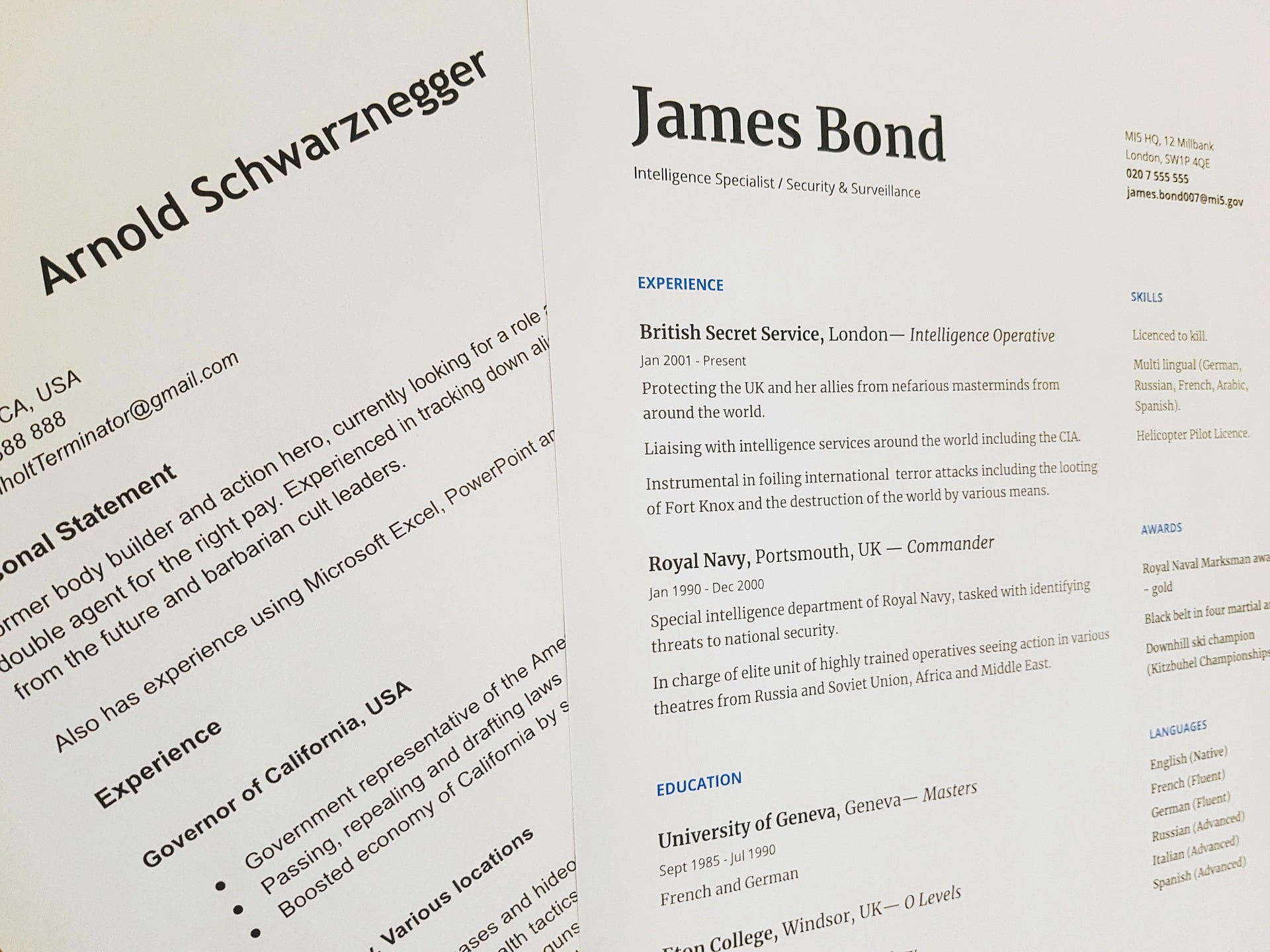
CV/ Resume Writing Tips
There's no better way to emphasize how crucial a CV is to job seekers than to remember that first impressions matter.
Your curriculum vitae (CV)/ resume serves as your first opportunity to capture the attention of hiring managers, recruiters, and potential employers. It is a powerful tool that not only opens the door to new opportunities but also has the potential to shape your job into a long and fulfilling career.
A strong CV effectively showcases your skills, achievements, and experiences. It is a chance to demonstrate what sets you apart from other candidates. By highlighting your unique strengths and showing how they match the job requirements, you can illustrate why you are the perfect candidate for the position. This tailored approach helps employers recognize the value you can bring to their organization.
Your resume is a representation of your professional path. It not only details your qualifications but also narrates the story of your career advancement and growth. A well-crafted resume demonstrates your progress, emphasizes important achievements, and displays your dedication to ongoing learning and enhancement. This can be especially beneficial when seeking higher-level positions or making a transition to a new field.
With over a decade of experience in the HR industry, I have witnessed firsthand the crucial role of a well-crafted CV. Your CV acts as a representation of your professional brand and serves as an initial introduction to potential employers. It is the first step in making a lasting impression and securing the job.
When putting together your CV, it's crucial to structure it with the following key sections:
Short Summary: Provide a brief overview of your professional background and career objectives.
Personal Details: Include your contact information, such as your full name, address, contact details, nationality, languages, race, etc.
Education History: Detail your academic qualifications, including degrees, certifications, and relevant courses.
Skills Matrix (for tech candidates): Highlight your technical skills, languages, tools, and platforms you are proficient in.
Employment History: List your previous positions, company names, and dates of employment, and provide detailed descriptions of your responsibilities and duties, ordered from most recent to oldest.
Use action verbs and quantifiable achievements on your resume.
In my opinion, the most important structure in a CV is its keywords, which we typically use while searching for specific CVS with particular fields on recruitment platforms. Using keywords is crucial if you want your CV to be found. Using recruitment platforms, background checks, interviews, ATS, and sourcing are a few examples of keywords I would use in my CV as a Recruitment Consultant.
The significance of customizing your CV for every job application
It's crucial to carefully evaluate your qualifications before applying for a job, even if you're confident in your resume. I have found that this approach has been helpful in my job search. When browsing through job listings, I only apply for positions where I meet the stated requirements. If I don't find a suitable match, I revisit the search the next day. I refrain from applying for roles for which I don't meet the minimum qualifications. On the other hand, if I come across a position that aligns with my qualifications and experience, I customize my resume to highlight how my skills and background fulfill the job requirements. This tailored approach has been beneficial in showcasing my suitability for specific roles.
My unconventional viewpoint/ advice:
• Resumes don't have to be lengthy unless you have been employed for an extended period
• Customize your CV for each job application, highlighting relevant skills and experiences that align with the job description.
• Professional photos can be helpful at times
• Check for errors in spelling, punctuation, font size, and heading quality, Avoid jargon and use straightforward language to make your CV easy to read.
• Hire a professional if possible, although there are plenty of resources available.
• You don't need to provide references; if employers want to move forward with your application, they will request them.
• Focus on quantifiable achievements and outcomes rather than just listing duties.
In conclusion, a powerful CV is crucial for your job search. It offers access to new opportunities, demonstrates your professionalism, showcases your unique value, and focuses and streamlines your job search efforts. Investing time and effort into crafting an engaging CV can substantially enhance your career prospects and set you apart in a competitive job market.
I am aware that numerous publications and resources cover this topic. However, as someone who deals with resumes daily, that is all I have to say.
Other Article: Mastering your Interview: A Comprehensive Guide to Successful Job Interview Preparation